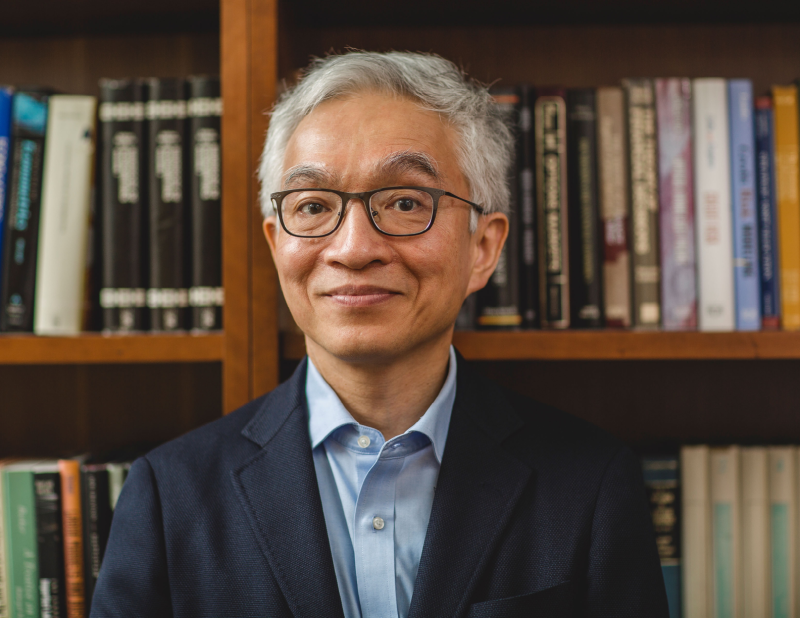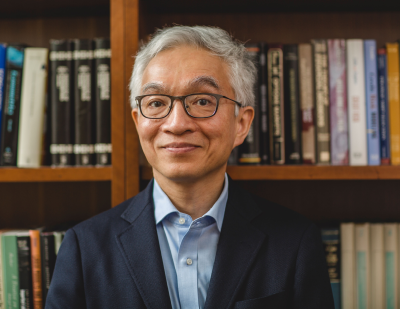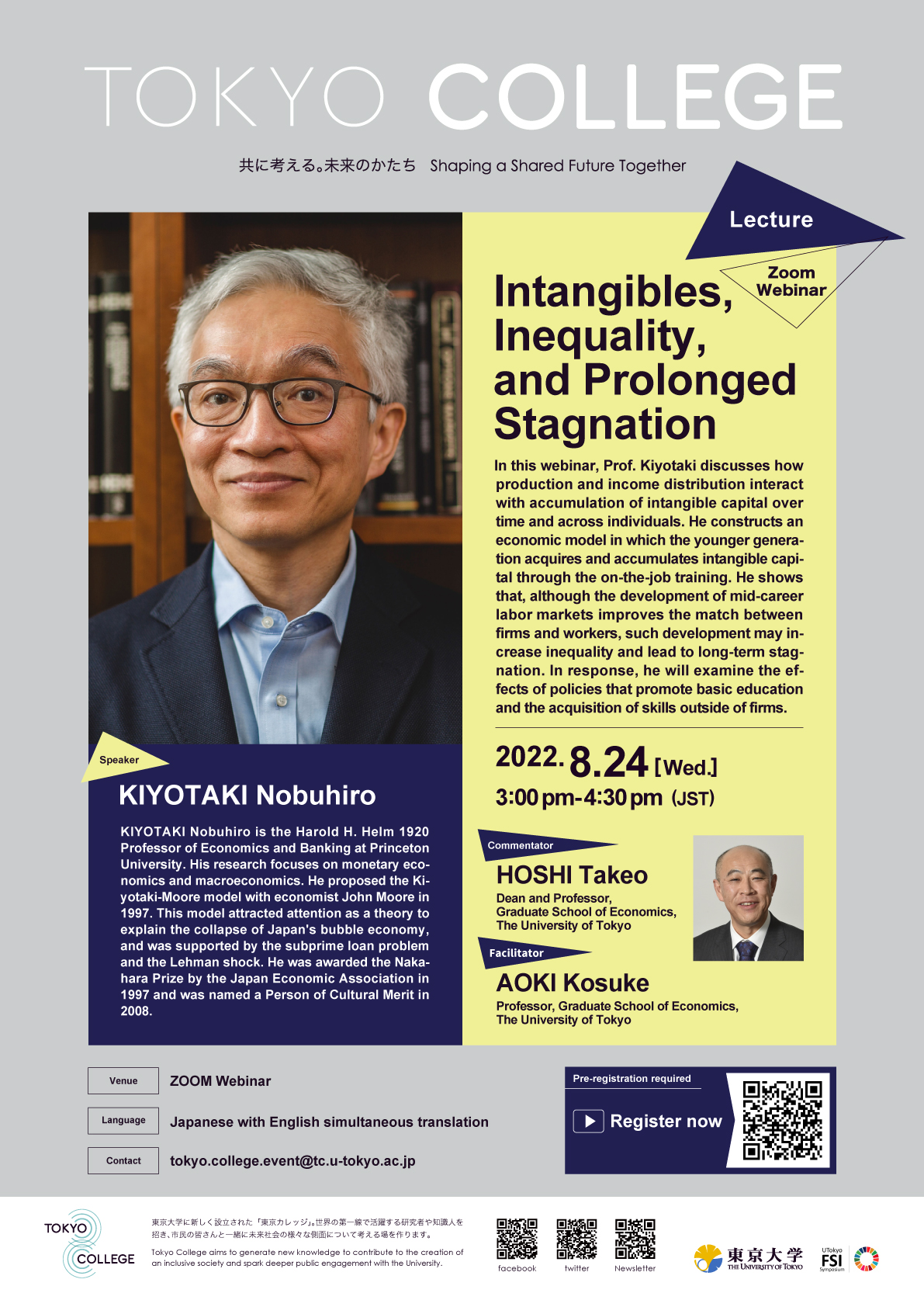“Intangibles, Inequality, and Prolonged Stagnation” Lecture by Prof. KIYOTAKI Nobuhiro

| Date(s) | Wednesday, 24 August 2022 3:00pm-4:30pm JST |
|---|---|
| Venue |
Zoom Webinar (Register here) |
| Registration | Pre-registration required |
| Language | Japanese with English simultaneous translation |
| Abstract |
In this webinar, Prof. Kiyotaki discusses how production and income distribution interact with accumulation of intangible capital over time and across individuals. He constructs an economic model in which the younger generation acquires and accumulates intangible capital through the on-the-job training. He shows that, although the development of mid-career labor markets improves the match between firms and workers, such development may increase inequality and lead to long-term stagnation. In response, he will examine the effects of policies that promote basic education and the acquisition of skills outside of firms. |
| Program |
Lecture:KIYOTAKI Nobuhiro (The Harold H. Helm 1920 Professor of Economics and Banking at Princeton University) Comment:Takeo Hoshi (Dean and Professor, Graduate School of Economics, The University of Tokyo) Q&A
Facilitator:AOKI Kosuke (Professor, Graduate School of Economics, The University of Tokyo)
|
| Speaker Profile |
KIYOTAKI Nobuhiro is the Harold H. Helm 1920 Professor of Economics and Banking at Princeton University. His research focuses on monetary economics and macroeconomics. He proposed the Kiyotaki-Moore model with economist John Moore in 1997. This model attracted attention as a theory to explain the collapse of Japan’s bubble economy, and was supported by the subprime loan problem and the Lehman shock. He was awarded the Nakahara Prize by the Japan Economic Association in 1997 and was named a Person of Cultural Merit in 2008. |
| Organized by | Tokyo College, The University of Tokyo |
| Contact | tokyo.college.event@tc.u-tokyo.ac.jp |
















